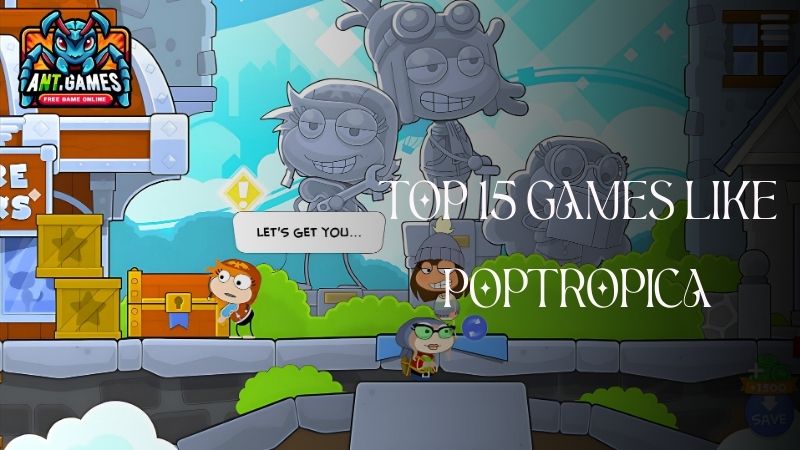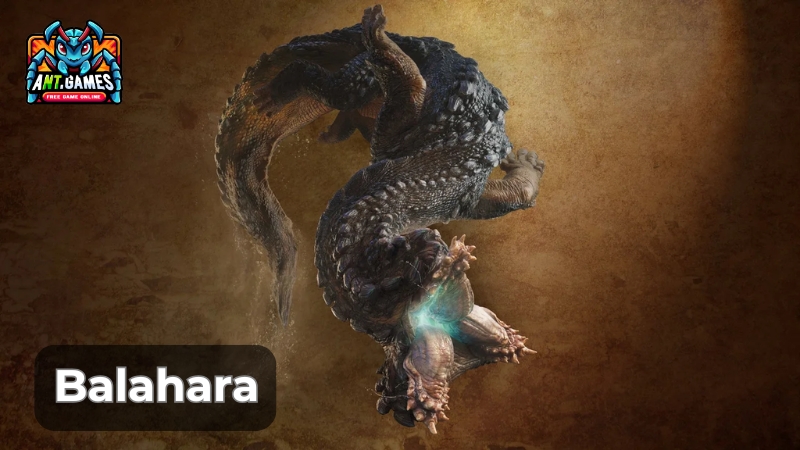Balahara, the Sand Sea Wyvern, slithers through the shifting dunes of Monster Hunter Wilds, a captivating new Leviathan in Capcom’s action RPG. This serpentine beast dominates the Windward Plains, weaving through sand and conjuring quicksand traps to ensnare its prey. Its brownish-gray scales, drill-like tail, and eerie tripartite jaw—studded with glowing, eye-like organs—make it a striking foe.
As an early test in the harsh deserts of the Forbidden Lands, Balahara challenges hunters to adapt and conquer. This guide explores its unique traits and battle strategies, equipping both newcomers and seasoned hunters to take on this desert predator.
Balahara’s Physical Characteristics
Balahara is a large Leviathan with a sleek, serpentine body built for desert survival. Its brownish-gray scales, small but sharp along its sides, protect a flexible skeleton that allows fluid movement through sand. Four stubby legs aid in surface traversal, while a long, drill-like tail propels it underground.
The monster’s head is its most striking feature: tripartite jaws, lined with sawblade-like teeth and scallop-shaped eyes, open to reveal a glowing interior. Gills at the neck’s base suggest an aquatic ancestry, adapted for sand. Its carapace, formed from fulgurite (lightning-fused sand), adds durability. Compared to Leviathans like Agnaktor, Balahara’s design emphasizes environmental synergy, making it a perfect predator for the Windward Plains.
- Size: Large Monster
- Appearance: Brownish-gray scales, sharp-sided carapace, four short legs, drill-like tail.
- Unique Features: Tripartite jaws with glowing interior, multiple sensory eyes, fulgurite carapace.
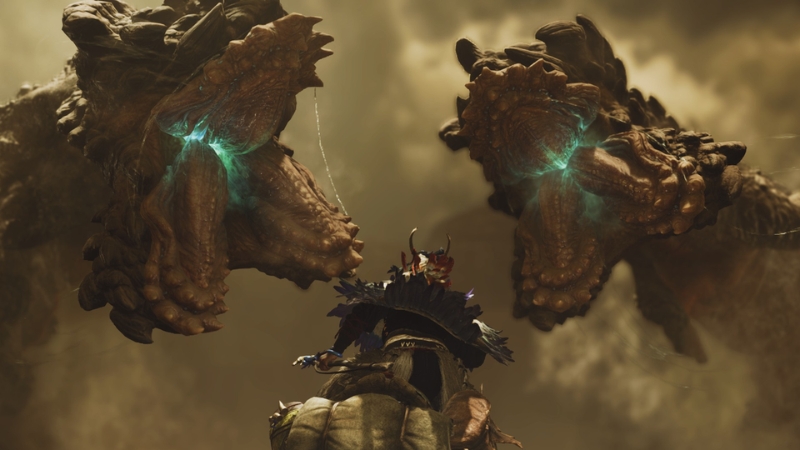
Balahara’s Behavior and Combat Abilities
Balahara is a territorial hunter that uses the Windward Plains’ sandy terrain to its advantage. It swims through dunes with ease, relying on heightened hearing to detect prey while submerged. Its signature tactic is creating quicksand traps, slowing victims before striking.
In combat, Balahara unleashes a mix of physical and elemental attacks, primarily Water-based, which can inflict Waterblight, hindering stamina recovery. Its moveset includes rapid tail strikes, biting lunges, and mucus spits that require precise dodging. Hunters can counter by exploiting its sensitivity to sound when underground, using sonic bombs to force it to the surface.
Behavior: Territorial, creates quicksand traps, relies on hearing when submerged.
Combat Abilities:
- Tail Thrust: Quick jab with drill-like tail.
- Tail Sweep: Wide arc to knock back foes.
- Tail Charge: Spinning rush with tail extended.
- Face Slam: Head-first dive into the ground.
- Bite Attack: Lunging bite, often repeated.
- Spit Attack: Up to three mucus spits, inflicts Waterblight.
- Charged Swipe: Broad, sweeping claw attack.
- Dig: Burrows to reposition or set traps.
- Dive Attack: Leaps from sand to strike.
Elemental Damage: Water
Status Effect: Waterblight (slows stamina recovery)
| Attack | Description | Counter |
| Tail Thrust | Fast tail jab | Dodge sideways |
| Spit Attack | Mucus spit (Waterblight) | Evade repeatedly to clear |
| Quicksand | Creates slowing zone | Use Seikret to escape |
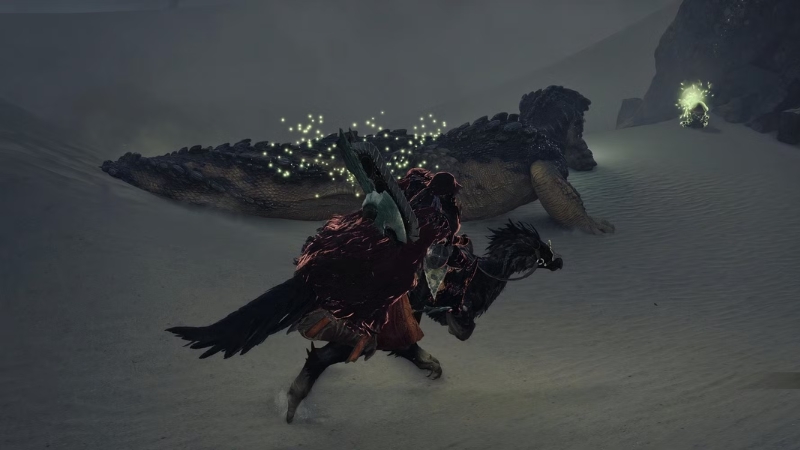
Where to Encounter Balahara in the Game
Balahara roams the Windward Plains, specifically Areas 11, 12, 13, and 15, where sandy dunes provide ideal hunting grounds. It becomes available after completing Village of Whispering Winds and A Hunter’s Pride quests, marking it as an early-game challenge.
Hunters can face it in several quests, ranging from story assignments to optional hunts. While the Festival of Accord: Blossomdance (ending May 6, 2025) focuses on cosmetic rewards, Balahara’s materials remain valuable for crafting during this period.
| Quest Name | Rank | Type | Rewards |
| Balahara of the Sandsea | 1★ | Assignment | Balahara Skull, Scale |
| Sand Sea Surges | 1★ | Optional | Balahara Certificate |
| The Desert Knows Not the Sea | 4★ | Optional | Balahara Shell |
| A Leviathan’s Temper | 5★ | Optional | Wyvern Gem |
Discover: 48 Monster in Monster Hunter Wilds
Combat Strategies for Defeating Balahara
Balahara’s sand-based combat demands preparation and precision. Thunder-element weapons are ideal, targeting its head and neck for maximum damage. Sonic bombs or screamer pods, obtainable from Baunos, stun it when submerged, creating openings. Focus Strikes to the mouth after mucus spits exploit its soft interior.
Dodge sideways to avoid tail attacks and evade repeatedly to clear Waterblight. Pitfall and shock traps can immobilize it, while mounting via Seikret offers control. Community tips suggest knocking down Fulagrite Pillars to disrupt its movements. For Arch-Tempered versions (if introduced in future events), expect faster attacks and higher damage, requiring tighter timing.
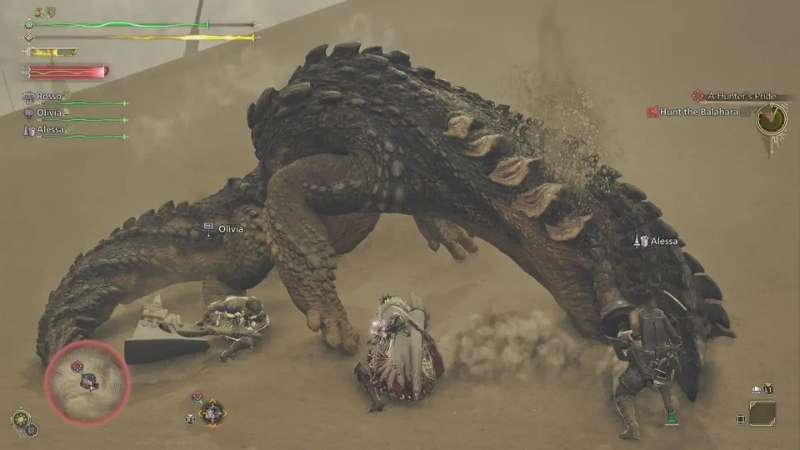
Weapon Choice: Thunder-element weapons (e.g., Thunder Hammer).
Weak Points: Head and neck (2-star Thunder weakness).
Items: Sonic bombs, screamer pods, flash pods.
Tactics:
- Use sonic bombs when submerged to stun.
- Strike mouth after spit attacks.
- Ride Seikret to escape quicksand.
- Deploy traps during surface phases.
Community Tip: “Mounting Balahara feels wild—time your attacks to avoid getting buried!” (X Post).
| Weakness Type | Head | Neck | Torso | Tail | Ailment Effectiveness |
| Thunder | 2★ | 2★ | 1★ | 1★ | Paralysis: 3★ |
| Fire | 1★ | 1★ | 1★ | 1★ | Exhaust: 3★ |
| Water | 0★ | 0★ | 0★ | 0★ | Poison: 2★ |
| Ice | 1★ | 1★ | 1★ | 1★ | Sleep: 2★ |
| Dragon | 1★ | 1★ | 1★ | 1★ | Blastblight: 2★ |
Official In-Game Description and Lore
In-Game Description: “Desert-dwelling leviathans that use their supple, serpentine bodies to create quicksand traps. Weak against sonic bombs when they’re submerged.”
Balahara’s lore casts it as a dominant predator of the Forbidden Lands’ deserts, shaping the Windward Plains’ ecosystem.
Its quicksand traps threaten both prey and rival monsters, making it a key obstacle in the game’s early narrative. The glowing mucus it secretes, filled with luminous bacteria, aids visibility in sandstorms, hinting at a complex biology adapted to harsh conditions. As hunters progress, Balahara’s materials become essential for crafting gear suited to desert exploration.
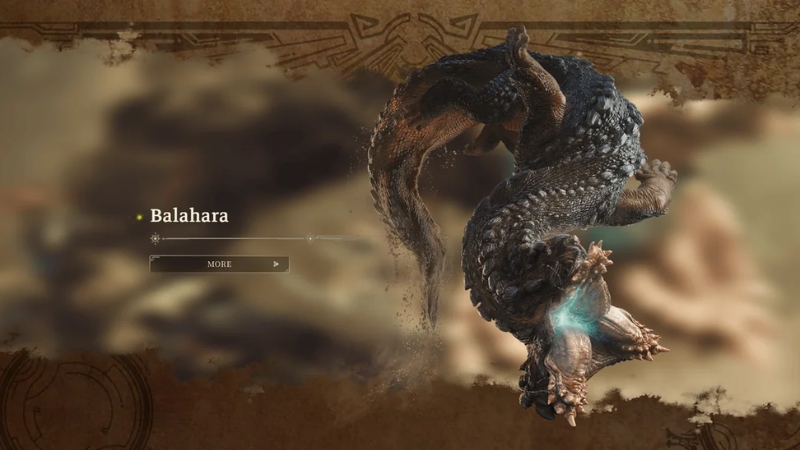
Discover more types of other Leviathans:
Fascinating Facts and Trivia About Balahara
Ever wondered what makes Balahara such a captivating foe beyond its sandy ambushes? Dive into the intriguing details below, from its mythic name to its antlion-inspired design, and uncover what fuels its desert dominance.
- Name Etymology: Likely from Sanskrit “bala” (strength) and “hara” (destroyer), reflecting its formidable nature.
- Design Inspiration: Modeled after antlions, which create pit traps, blending real-world biology with fantasy.
- Fan Nicknames: Known as “Sand Drill” or “Quicksand Serpent” in community discussions on X.
- Community Engagement: Players share thrilling moments, like being dragged underground while mounting Balahara, showcasing its dynamic combat.
- Development Insight: Capcom likely studied desert predators to craft Balahara’s unique environmental interactions.
Balahara, the Sand Sea Wyvern, epitomizes the exhilarating challenge of Monster Hunter Wilds. Its sleek, sand-diving movements and cunning quicksand traps keep hunters on edge, demanding sharp instincts and smart strategies. From its eerie glowing jaws to its fulgurite-scaled body, Balahara’s design is as captivating as it is formidable, and its materials propel your progress in the Forbidden Lands.
With the Festival of Accord: Blossomdance infusing the Grand Hub with festive spirit, now’s the perfect moment to face this desert serpent. Head into the dunes, take on Balahara, and make your mark in Monster Hunter Wilds.

